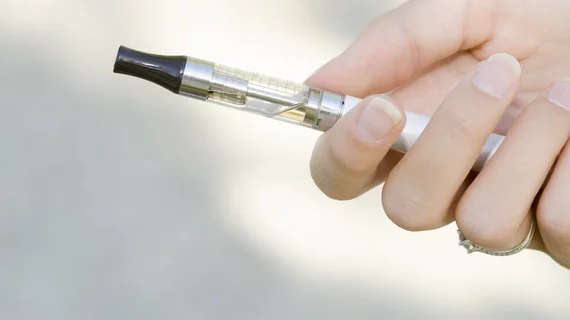Cases of vaping-related lung illness exceed 1K; deaths reach 18
The Centers for Disease Control and Prevention doubled down on its warnings about vaping products Oct. 3 after new numbers revealed more than 1,000 reports of vaping-related lung illness and 18 fatalities in recent weeks.
NPR reported Thursday that the case count had reached 1,080, with this week’s number of reports representing an increase of 275 cases over last week. Eighteen deaths related to vaping—primarily vaping THC products—have been confirmed across 15 states, with other deaths under investigation.
“We’re worried that there are plenty of risky products still out there,” Anne Schuchat, principal deputy director for the CDC, said, per NPR. “That’s one of the reasons we’ve intensified our warnings.”
The CDC is now warning people against using any vaping products, especially ones containing THC. Investigators in New York previously identified vitamin E acetate as a potential culprit behind the epidemic, but Schuchat said it’s “pretty much impossible” to tell what’s in a vaping cartridge, especially if it’s purchased off the street or through social circles.
An investigation by the FDA is underway, but the agency said it hasn’t found any one product or compound that can be linked to all cases of vaping-related illness. Schuchat said the CDC continues to receive new reports, suggesting the crisis hasn’t peaked.
Read more below:

